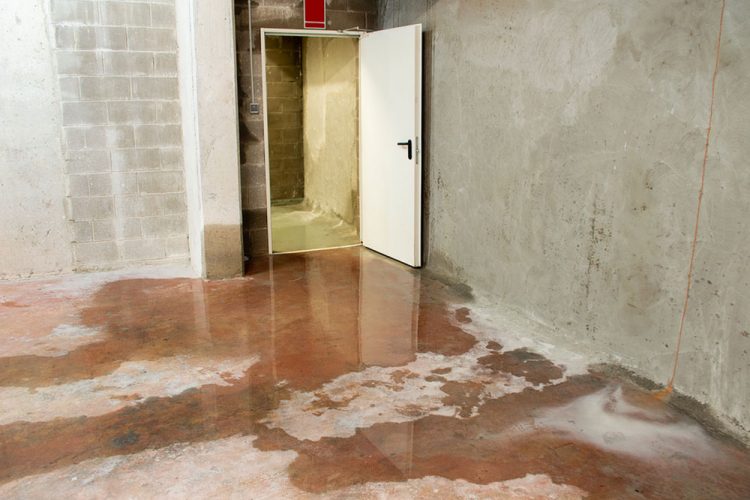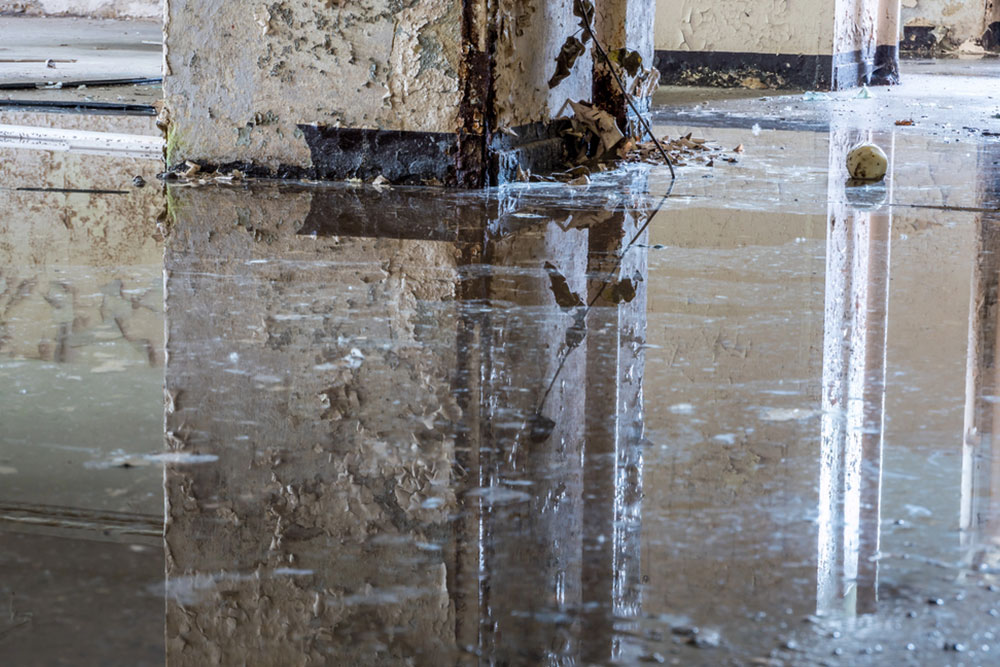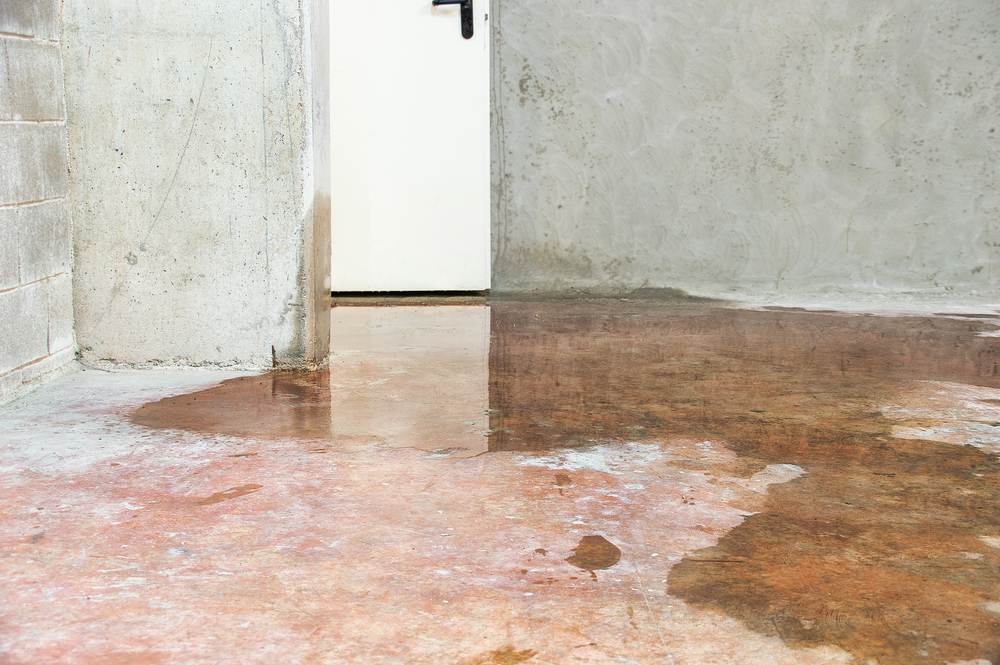Flooding can happen unexpectedly, wreaking havoc on your home. When a basement floods, it can cause significant damage and disrupt your daily life. The water may come from heavy rainfall, plumbing issues, or even an overflowing washing machine.
No matter the source, cleaning up a flooded basement is a job that requires professional expertise. Knowing the basement flood clean-up cost is fundamental for homeowners, especially if they need to act fast to prevent further damage.
This article will break down what you can expect in terms of the cost of basement flood cleanup. It will cover the key factors that influence the pricing, how different types of damage affect the cleanup, and what you can do to minimize costs.
If you’re dealing with a minor flood or a serious disaster, understanding the cost factors will help you plan accordingly.

Factors That Impact Basement Flood Clean-Up Cost
Flood cleanup costs can vary significantly depending on several factors. Each situation is unique, and so are the factors that determine the final bill. Here are some key considerations that play a role in how much you can expect to spend:
Size of the Basement
The size of the flooded area is one of the most significant factors in determining clean-up costs. Larger basements require more resources, including time, labor, and equipment. The more extensive the area, the higher the cost.
Typically, flood clean-up companies charge between $3.50 and $7.25 per square foot. So, if you have a basement that’s around 1,000 square feet, you could expect to pay anywhere from $3,500 to $7,250, depending on the severity of the damage. Smaller spaces will cost less, but larger areas could drive costs higher.
Water Damage Category
The category of water that flooded your basement plays a significant role in the clean-up process. Water damage is typically classified into three categories based on the source and contamination level:
- Category 1: Clean water from broken pipes or supply lines. This is the least severe, and clean-up costs range between $3.50 and $4.25 per square foot.
- Category 2: Grey water, which is somewhat contaminated. This can be water from washing machines or dishwashers. Clean-up costs for category 2 typically range from $4.10 to $5 per square foot.
- Category 3: Black water, the most contaminated and dangerous water. This includes sewage backups or floodwater from natural disasters. Clean-up for category 3 can cost anywhere from $6.25 to $7.25 per square foot.
As the severity of contamination increases, the cost of clean-up rises. Black water, for instance, requires more extensive cleaning and sanitizing, which adds to the overall cost.
Type of Damage and Cleanup Required
Flooding can lead to different types of damage, and the extent of the damage will directly affect how much you will spend. Here are a few types of damage to keep in mind:
- Minor Water Damage: This is typically categorized as category 1, where water doesn’t pose a health risk. Clean-up costs are usually lower, ranging from $1,000 to $5,000 for smaller spaces.
- Moderate Water Damage: Grey water damage (category 2) means contamination is present. Cleanup involves not just water removal but also the disinfecting of surfaces to prevent health risks. This clean-up can cost $4,000 to $8,000, depending on the size of the area.
- Severe Water Damage: Black water damage (category 3) requires specialized equipment and careful handling due to its hazardous nature. Black water floods often result in costly repairs, as contaminated materials might need to be disposed of. Costs for category 3 clean-up can easily reach $10,000 to $15,000, especially if the damage is extensive.
Along with water removal, various repairs might be necessary, such as replacing damaged drywall, floors, or furniture. These repairs will add to the overall cost.
Additional Services Required
In addition to water removal and drying, you may require other services that add to the cost:
- Mold Remediation: Flooded basements are prone to mold growth due to the moisture. If mold is found, it must be removed. Mold remediation typically costs $1,500 to $3,500, depending on the extent of the contamination.
- Structural Repairs: Severe flooding may damage the foundation, walls, or floors. This can result in significant repair costs, ranging from a few thousand dollars to as much as $25,000 in the most extreme cases.
- Document Drying: If important documents are damaged during the flood, drying services may be needed. These services can cost between $50 and $100 per cubic meter of paper.
The need for these additional services will increase the total cost of cleanup.
Cost Breakdown by Basement Size
One of the biggest considerations in basement flood clean-up costs is the size of the affected area. Larger basements naturally require more labor and resources, increasing the overall cost. Here’s an average cost breakdown for flood cleanup based on common basement sizes:
- 500 sq. ft. Basement: $1,750 – $3,620
- 1,000 sq. ft. Basement: $3,500 – $7,250
- 1,200 sq. ft. Basement: $4,200 – $8,700
- 1,500 sq. ft. Basement: $5,250 – $10,870
- 1,800 sq. ft. Basement: $6,300 – $13,000
These prices are averages, and the final cost will depend on the severity of the flood and the category of water involved. For example, a smaller basement with clean water might cost less than a larger space flooded with black water.
Local Geography and Conditions
The location of your property plays a role in the cost of basement flood clean-up. Homes situated in flood-prone areas or regions with heavy rainfall will likely face higher clean-up costs. This is because the risk of flooding is higher, and properties in these areas may require additional preventive measures such as sump pumps or improved drainage systems.
Moreover, the proximity to local service providers will also impact the pricing. If your location is far from a plumbing company’s base of operations, they may charge higher fees for travel time and transportation of equipment. Conversely, being in a densely populated area could mean quicker response times and possibly lower service fees due to the competition between local contractors.
Insurance Coverage
Insurance coverage can have a significant impact on your out-of-pocket costs. If you have comprehensive home insurance, it may cover a portion of the flood cleanup costs, but flood damage often requires a separate flood insurance policy. Many homeowners do not realize that regular home insurance policies may not cover damage from natural floods. Instead, you might need specialized flood insurance, which can be expensive and requires a policy specific to flood-prone areas.
If you have flood insurance, this can reduce the financial burden of the cleanup. However, there could still be deductible costs that need to be covered before the insurance kicks in. Make sure to check your policy to determine what is covered and how much assistance you will receive.
Labor Rates in Your Area
Labor rates for plumbing, water damage restoration, and cleaning services can vary greatly depending on the region. For example, labor rates are typically higher in larger cities compared to rural areas. Plumbers and clean-up professionals may also charge different rates based on their experience and the complexity of the job. Highly specialized services such as mold remediation or water damage restoration may command higher labor fees.
In areas with a higher cost of living, such as major metropolitan regions, you can expect the overall cost of clean-up services to be more expensive. It’s important to get multiple quotes from different service providers to make sure that you are getting a fair price for the work.
Speed of Service
If the flooding in your basement is a result of an emergency, you may need an immediate response. Emergency service fees are typically higher than regular service rates. Companies that offer 24/7 emergency service may charge a premium for immediate assistance, especially if the flooding is severe or if water damage is spreading rapidly.
For example, if your basement flood happens outside of normal working hours, such as during the night or on a weekend, you may be charged additional fees for after-hours service. It’s advisable to discuss the service rates upfront when calling to make sure that you are prepared for any extra charges associated with emergency clean-up services.
Complexity of the Job
The complexity of the clean-up job can also affect pricing. Some flood situations require more extensive work than others. For example, if your basement has several feet of water or has suffered extensive structural damage, the job will require more resources and more time.
- Minor Water Damage: If you only need to remove a few inches of clean water, the job is straightforward and can be done fairly quickly and at a lower cost.
- Severe Water Damage: On the other hand, extensive water damage may require the removal of flooring, drywall, insulation, and other structural elements. It can take days or even weeks to properly dry out the space and restore it, resulting in significantly higher costs.
Additionally, if the flooding involved hazardous materials such as sewage, the complexity increases due to the need for specialized cleanup and disinfecting procedures.
Equipment and Tools Used
Basement flood clean-up may require the use of specialized equipment such as sump pumps, industrial fans, dehumidifiers, and heavy-duty vacuums. Depending on the severity of the flood, the cost of renting or using these tools may be added to the overall price.
- Sump Pumps: If the water has risen above a certain level, a sump pump is important for removing standing water. Rental fees for these pumps can range from $100 to $300 per day.
- Dehumidifiers and Fans: Industrial-grade fans and dehumidifiers are necessary for drying out the space to prevent mold and mildew growth. These machines can cost $100 to $200 per day to rent, and the more equipment needed, the higher the cost.
- Heavy-Duty Equipment: In extreme cases, specialized machines such as submersible pumps, water extractors, and drying systems might be necessary. These machines are expensive to rent and operate, which can increase the overall cost of the clean-up.
Clean-Up of Personal Belongings
When your basement floods, personal belongings such as furniture, electronics, and stored items may be damaged or destroyed. If your basement contains valuable or irreplaceable items, the clean-up process may involve the removal, cleaning, and, in some cases, restoration of these belongings. Personal property restoration costs can range from hundreds to thousands of dollars, depending on the extent of the damage.
If items are severely damaged, such as electronics that have been submerged in water, they may need to be replaced. Restoration professionals may attempt to restore important documents, photographs, and other valuable items, but the success of such efforts depends on how quickly the items are retrieved and treated after the flooding occurs.
Severity of Mold and Mildew
One of the biggest concerns after basement flooding is the growth of mold and mildew. If the water remains in the basement for an extended period, or if the area is not dried quickly and properly, mold can begin to grow within 24 to 48 hours. The longer the mold has to grow, the more expensive it will be to remove.
Mold remediation involves more than just removing visible mold. It includes cleaning and treating the area to prevent further growth and protect the health of your family. Mold remediation can range from $500 to $6,000, depending on the extent of the contamination and the size of the affected area.
How to Avoid Basement Flood Clean-Up Costs in the Future
Dealing with a flooded basement can be both stressful and expensive. Fortunately, there are several preventative measures you can take to reduce the risk of basement flooding and minimize potential damage.
- Regularly Maintain Your Plumbing and Drainage Systems
One of the most effective ways to prevent basement flooding is to regularly maintain your plumbing and drainage systems. Cleaning out your drains, inspecting your sump pump, and fixing any leaks in your plumbing system will reduce the likelihood of a backup or overflow. Scheduling professional inspections for your plumbing system can catch problems early before they escalate into expensive disasters.
For more comprehensive drain maintenance and repair, consult a local plumbing expert for help.
- Install a Sump Pump
If you live in an area prone to flooding, installing a sump pump in your basement is a worthwhile investment. A sump pump helps remove water from your basement in case of excessive rainfall or groundwater infiltration. Make sure to have your sump pump regularly inspected and maintained so it’s always in working order when you need it most.
- Waterproof Your Basement
Waterproofing your basement can greatly reduce the risk of flooding. This includes sealing cracks in the foundation, applying water-resistant coatings to walls and floors, and installing proper drainage systems around your property. If your basement is not yet waterproofed, it might be worth considering an upgrade to help protect it from future floods.
Preparing for Future Basement Floods
Flooding is a real threat that homeowners face, especially in areas prone to heavy rain, poor drainage, or aging infrastructure. The cost of cleaning up a flooded basement can vary greatly based on several factors, including the size of the space, the type of damage, and the labor involved. However, knowing what to expect and being prepared can help you navigate the process smoothly.
To avoid costly clean-ups, proactive measures like regular plumbing maintenance, sump pump installation, and basement waterproofing are invaluable. Taking these steps can help protect your home and save you from the financial and emotional stress that comes with a flooded basement.
If you are concerned about your basement flooding, trust Z PLUMBERZ to provide fast, professional service to safeguard your home.
Additional benefits of partnering with us include
-

24/7 Emergency Services, Paperless Communication
-

Reduced Rates and Preferred Pricing
-

Preventative Maintenance Scheduling
-

Online Scheduling and Account Management


